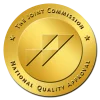Suicide Prevention – Support Our Veterans

The International Association for Suicide Prevention (IASP) has deemed September 8 through 14 as World Suicide Prevention Week. The purpose of this designation is to raise awareness that suicide can be prevented. According to a Department of Defense report in armytimes.com, nearly two thirds of active duty military who died of suicide in 2012 were seen by a doctor within three months on the suicide. Approximately one third of those told someone of their plans. The report also stated that 42 percent had at least one mental health diagnosis. And, one in five were prescribed a psychiatric medication within 90 days of the suicide. Another Department of Defense study states that there were 319 suicides in active duty personnel and 203 in reserves. A total of 841 service members had one or more attempted suicides. Recent reports state that the total number of suicides decreased by 18 percent in 2013, although the reserves numbers were slightly higher.
The Department of Veterans Affairs recognizes the severity of this issue and will be launching a $34.4 million study in an attempt to decrease the number of suicides in the military. This study will be conducted on 1,800 veterans who have previously attempted to take their own life.
Suicide can be prevented by decreasing the factors that increase the risk and increase the factors that help a person cope with the struggles of life. According to the U.S. Department of Veterans Affairs, the Center for Disease Control, and Suicide.org, the following are Protective Factors and Warning Signs of which to be aware.
Protective Factors are ways of dealing with feelings and emotions that reduce the risk of suicide.
- Effective clinical care for mental, physical, and substance abuse disorders
- Easy access to a variety of clinical interventions and support for help seeking
- Family and community support (connectedness)
- Support from ongoing medical and mental health care relationships
- Skills in problem solving, conflict resolution, and nonviolent ways of handling disputes
- Cultural and religious beliefs that discourage suicide and support instincts for self-preservation
These feelings or actions may be a Warning Sign that someone is contemplating suicide.
- Appearing sad or depressed most of the time – untreated depression is the number one cause of suicide
- Clinical depression or deep sadness
- Talking or writing about suicide
- Loss of interest, trouble sleeping, and eating—that doesn’t go away or continues to get worse
- Feeling anxious, agitated, or unable to sleep
- Neglecting personal welfare, deteriorating physical appearance
- Withdrawing from friends, family, and society, or sleeping all the time
- Losing interest in hobbies, work, school, or other things one used to care about
- Abusing drugs and/or alcohol
- Frequent and dramatic mood changes
- Feeling strong anger, rage, or showing violent behavior
- Expressing feelings of excessive guilt or shame
- Feeling hopeless or helpless
- Feelings of failure or decreased performance
- Feeling that life is not worth living or having no sense of purpose
- Talk about feeling trapped—like there is no way out of a situation
- Having feelings of desperation, and saying that there’s no solution to their problems
- Exhibiting behavior out of the ordinary such as performing poorly at work or school
- Acting recklessly or engaging in risky activities
- Looking as though one has a “death wish,” tempting fate by taking risks that could lead to death, such as driving fast or running red lights
- Giving away prized possessions
- Putting affairs in order, tying up loose ends, and/or making out a will
- Seeking access to firearms, pills, or other means of harming oneself
If you or someone you know or love exhibits any of these behaviors, please seek help immediately. Please call 911, the Veterans Crisis Line at 1-800-273-8255 and press 1, or 1-800-SUICIDE (1-800-784-2433), OR 1-800-273-TALK (1-800-273-8255).
Peak Behavioral is a TriCare mental health provider for active duty, veterans and their dependents. Free clinical assessments are available 24/7 for psychiatric crisis, call (888) 289-0392 for help and more information.
Sources:
http://veteranscrisisline.net/SignsOfCrisis/Identifying.aspx
http://www.suicide.org/suicide-warning-signs.html
http://www.cdc.gov/violenceprevention/suicide/riskprotectivefactors.html
http://www.defense.gov/news/newsarticle.aspx?id=122126
http://www.armytimes.com/apps/pbcs.dll/article?AID=2014304250048






